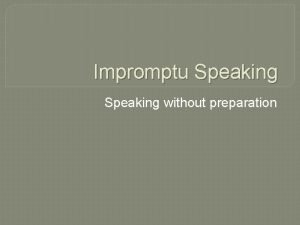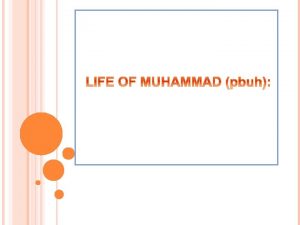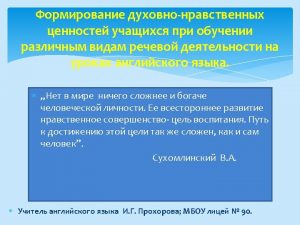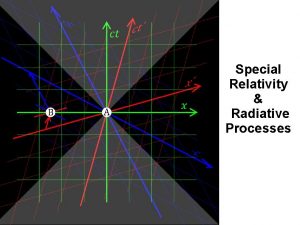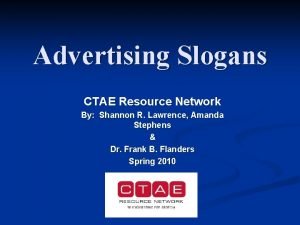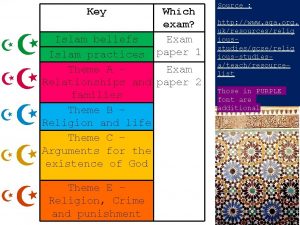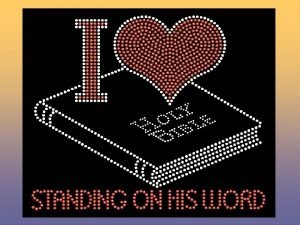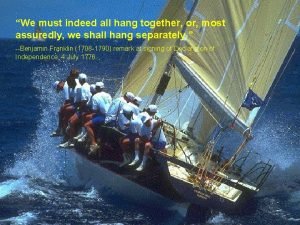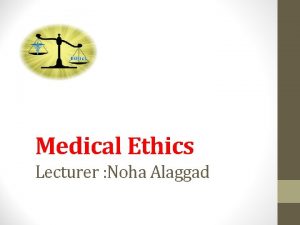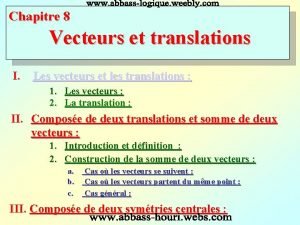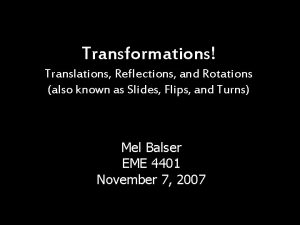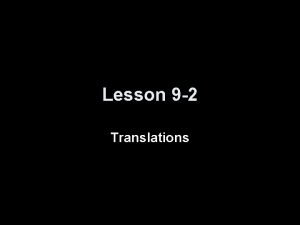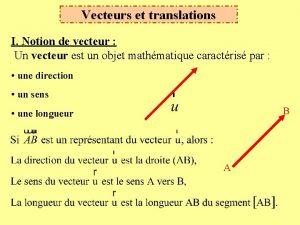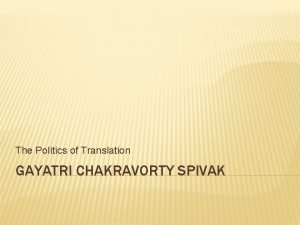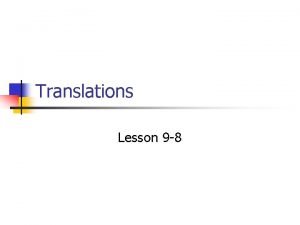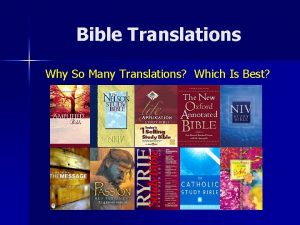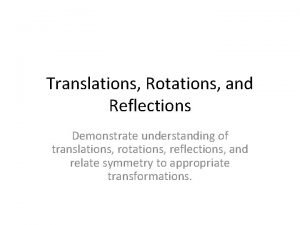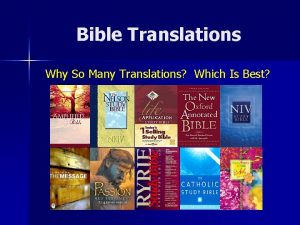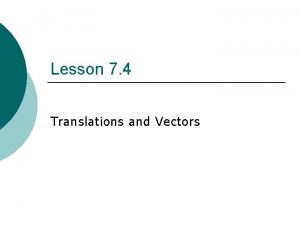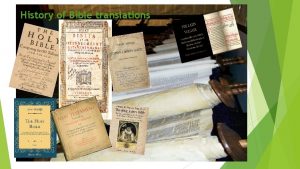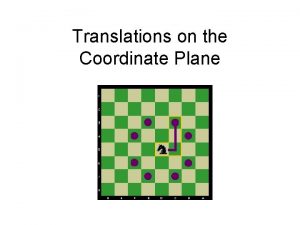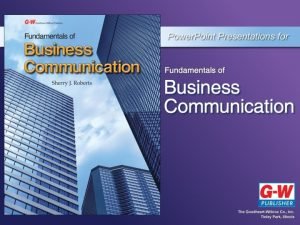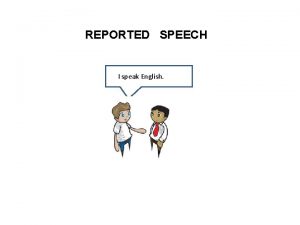Translations Indeed He will speak to this people























- Slides: 23

Translations

Indeed, He will speak to this people through stammering lips and a foreign tongue (Isaiah 28: 11).

• Ptolemy Soter – City of Alexandria – Pharos Lighthouse – Museum of Alexandria !

• Ptolemy Soter – City of Alexandria – Pharos Lighthouse – Museum of Alexandria • Ptolemy Philadelphus • Translation of the Hebrew Scriptures into Greek

Aramaic Translation • Translated Old and New Testament into Aramaic (Syriac) in the 2 nd Century A. D. • Peshitta means “simple” or “straight. ” • Did not originally include the General Epistles or Revelation.


Jerome 347 -420 • Traveled to Syria and learned Hebrew, later traveled through Palestine and Egypt • Settled in Palestine where he devoted himself to writing • Translated the Bible into Latin (Vulgate)

680 A. D. • Early English poet • Had a monk translate parts of the Bible into Anglo-Saxon • Put those portions of the Bible to music

639 - 709 • • • Bishop in southern England Latin scholar Translated portions of the Psalms from the Vulgate into Anglo-Saxon

673 -735 • Historian • Ecclesiastical History of the English People • Adopted the method of dating invented by Dionysius Exiguus • Translated Gospel of John into English

849 -899 • King of England • Mandated that all freeborn males learn to read • Personally translated some of the Psalms into English

The Morning Star of the Reformation (Died 1384) • Studied theology at Oxford • Translated the Vulgate into English • Lollards: “Poor priests” • Bones exhumed and burned

The Morning Star of the Reformation (Died 1384) These thingis Jesus spak; and whanne he hadde cast up hise eyen into hevene, he seide: “Fadir, the our cometh; clairfie thi sone, that thi sone clarifie thee; as thou hast yovun to hym power on ech fleische, that al thing that thou hast yovun to hym, he yyve to hem everlastynge liif. ” (John 17: 1 -2).

1494 -1536 • Translated the Bible into English • Condemned as a heretic • “Lord, open the eyes of the king of England!”

Translation Date Description Coverdale 1535 Bible Coverdale was Tyndale’s assistant who worked from the Latin Vulgate Matthew 1537 Bible John Rogers used the pen name of Thomas Matthew Great Bible 1539 Geneva Bible 1557 Second edition of Matthew Bible was large Translated by Calvin’s brother-in-law, William Wittingham

1611 • James VI of Scotland became king of England in 1603 • Millenary Petition • Six Teams of Translators – Two at Westminster – Two at Oxford – Two at Cambridge • Masoretic & Textus Receptus


Charity never faileth: but Love never fails; but if there whethere be prophecies, are gifts of prophecy, they will they shall fail; whethere be done away; if there are be tongues, they shall cease; tongues, they will cease; if whethere be knowledge, there is knowledge, it will be it shall vanish away. 9 For we done away. 9 For we know in part, and we part and we prophesy in part; prophesy in part. 10 But when 10 but when the perfect that which is perfect is come, comes, the partial will be then that which is in part shall done away. 11 When I was a be done away. 11 When I was child, I used to speak like a a child, I spake as a child, I child, think like a child, understood as a child, I reason like a child; when I thought as a child: but when I became a man, I did away became a man, I put away with childish things.

Word for word Thought for thought NASB Interlinear KJV ESV NKJV NIV NLT Living Bible Message

1952 • Publication of the National Council of Churches • Originally designed to be a revision of the American Standard Version of 1903. “The New Testament is quite faithful to the best Greek texts; the Old Testament often departs from Hebrew for readings in Greek, Latin, Syriac, Aramaic, or just conjecture. ” (Dr. William S. La. Sor).

1971 • 58 scholars brought together by the Lockman Foundation • Critics argued it is too literal. • Updated in 1995. “Considerable attention has been given to translation of verb tenses with the result that it often sounds awkward and slightly pedantic. ” (Robert H. Mounce, Professor of Religious Studies at Western Kentucky University).

1978 • Translation core group of 15 scholars with a team of around 100. • Use of modern, easy-to-read English. • Updated in 2011 to reflect gender neutral language.

1978 "We tried to avoid making a mechanical word for word rendition, which is the tendency of some versions that stress faithfulness to the original languages. Our translators always asked, 'Knowing what the original writer was trying to communicate, how would we say the same thing today? '" (Dr. Burton Goddard, interview in Eternity Magazine).
 Perform without preparation
Perform without preparation Successful indeed are the believers
Successful indeed are the believers Indeed in the messenger of allah
Indeed in the messenger of allah A friend in needs a friend indeed
A friend in needs a friend indeed Define:indeed
Define:indeed Sector alarm indeed
Sector alarm indeed Boost interprocess
Boost interprocess A nose in need deserves puffs indeed slogan
A nose in need deserves puffs indeed slogan Indeed
Indeed He is risen indeed banner
He is risen indeed banner We must indeed all hang together
We must indeed all hang together Beneficence in medical ethics
Beneficence in medical ethics Pressure symbol
Pressure symbol How many people speak russian
How many people speak russian Ping-pong and bowling conversation styles
Ping-pong and bowling conversation styles Translation du vecteur
Translation du vecteur Turkish bible translations
Turkish bible translations Translations reflections and rotations
Translations reflections and rotations What are the properties of translations
What are the properties of translations Lesson 9-2 translations
Lesson 9-2 translations Vecteur et translation
Vecteur et translation Spivak translation theory
Spivak translation theory Journalistic document translations
Journalistic document translations Translation de vecteur
Translation de vecteur
